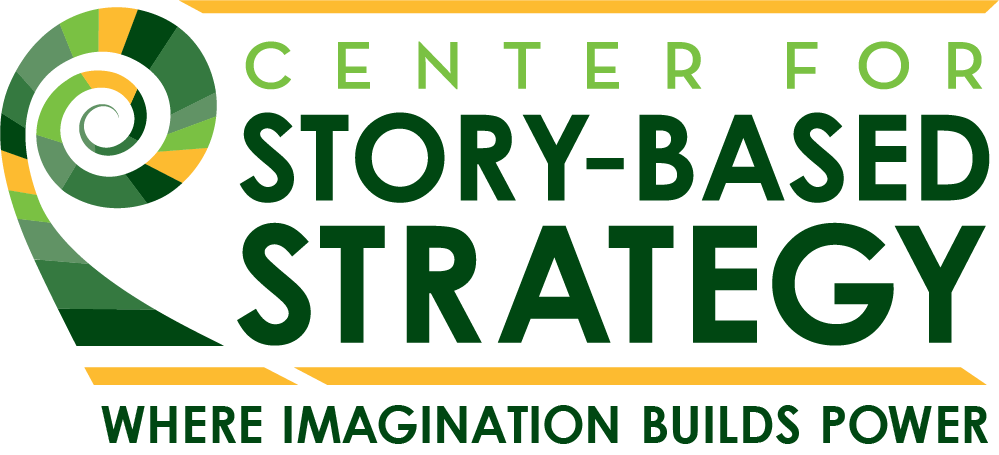How to win the world we need
by Jacob Swenson-Lengyel | Communications Lead | National People's Action/NPA Campaign
After landing at the San Francisco airport towards the end of July, I piled into a van with other organizers and activists to head into the Redwoods along the Pacific Ocean. We were coming from different parts of the country and different parts of the movement to learn and talk together about narrative change work at the Center for Story-Based Strategy’s Advanced Training.
Over the course of that week in the woods, we did a deep dive into strategic story telling. We learned about how to craft narratives that move our ideas, our values, and our campaigns forward. We also learned about different work that each of us was engaged with and were able to apply the tools and skills we were picking up to actual on the ground campaigns. Along the way, we had a blast playing extreme ro-sham-bo, building cardboard buses, and enjoying the beautiful surroundings.
I returned home inspired to make use of what I’d learned.
At the time, National People’s Action was in the process of launching our environmental justice campaign around the Clean Power Plan. In early September, our team scheduled a two-day meeting to discuss our overall strategy. A week or two before the meeting, I was talking with Joseph Phalen about how best to prepare the team do the “Battle of the Story” exercise together and we hit on the idea of doing a Narrative Power Analysis.
I’d picked up the idea of “Narrative Power Analysis” during the summer, but for our campaign, I decided it’d be best to do something that was a hybrid between a traditional media sentiment analysis and a narrative power analysis that deconstructed common elements across a number of news stories.
Initially, I focused on a six-week period of coverage, but after talking with our environmental justice campaign team, I decided to continue monitoring media through the end of the year and release the findings as a report to open up a dialogue with other groups working on the Clean Power Plan about how we can challenge the dominant opposition narrative, particularly when it comes to the potential impact of the plan on low-income people and people of color.
Now that the report is complete, I’m looking forward to designing communications that apply what we’ve discovered and to working with our affiliates to get our story out there. I’m grateful that the Center for Story-Based Strategy exposed me to the practice of Narrative Power Analysis along with so many other fantastic tools.
They are helping us wage better fights and I believe they are crucial for helping us win the world we need.




